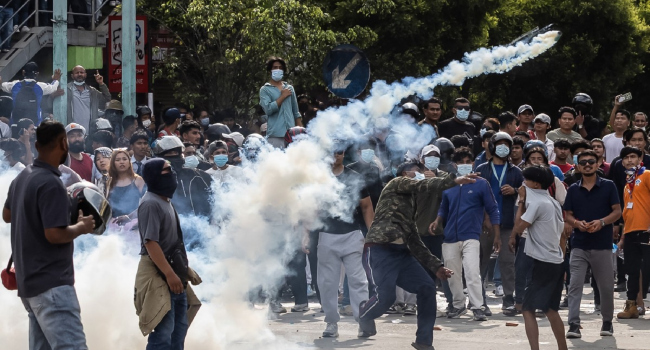The protests that toppled Nepal’s government last week echo youth uprisings across Asia, fuelled by economic despair, corruption and disillusionment with entrenched elites.
The “Gen Z” movement erupted on September 8 after a social media ban but quickly grew into wider anger over unemployment — with one in five young Nepalis jobless — and corruption. Deadly police crackdowns left at least 17 dead, forcing veteran prime minister KP Sharma Oli to resign as parliament and government buildings were torched.
Protesters turned to Discord to nominate 73-year-old former chief justice Sushila Karki as interim prime minister ahead of March 2026 elections.
The turmoil mirrors Sri Lanka’s 2022 revolt, Bangladesh’s student-led 2024 uprising, and unrest in Indonesia and East Timor — all marked by youthful populations mobilised online. Protesters have compared their bleak prospects to the lavish lifestyles of political elites, often showcased on TikTok.
Analysts say the “youth bulge” is a common thread across South and Southeast Asia. Human Rights Watch’s Andreas Harsono warned: “Jobs are obvious challenges, both in Nepal and Indonesia.” Amnesty International’s Usman Hamid added: “With increasing frustration, they have no choice but to push back against a system they believe has failed.”
In India, opposition politicians pointed to Nepal as a warning sign. Congress MP Shashi Tharoor called it a “blaring siren for New Delhi,” while Shiv Sena’s Sanjay Raut said: “This can happen in any country. Be cautious.”



